How Safe Is Japan?
The word "Japan" brings to mind many things: high-tech, sushi, anime, samurai, and cherry blossoms. It is one of the most intriguing countries in...

4 min read
It is no secret that access to clean water, arable land, and food (or lack thereof) has contributed to the rise and fall of empires. This holds true in the present day, with the availability of scarce resources driving recent conflicts in Africa and the Middle East. Further exacerbating these issues in recent years are supply chain disruptions due to the COVID-19 lockdowns by the governments.
With consumers impacted by inflation and higher taxes, there has been an outflow of citizens from high-cost countries like Canada, France, and the United States. Keeping that in mind, the list below will focus on popular expat destinations, emphasizing affordability and standard of living.
Located on the Equator, Ecuador is famous for its diverse landscape that includes fertile valleys, numerous active volcanoes, and an extensive coastline. With no shortage of fresh water and a large portion of the labour force dedicated to agriculture and fishing, Ecuador ranks highly for food and water independence. In addition, it is a major exporter of bananas, cacao, crustaceans, and shrimp.
Like neighbouring Colombia, the country has become a popular expat destination thanks to a low cost of living, ease of obtaining a residency visa, low inflation (Ecuador is a dollarized country), and no taxes on foreign-sourced income.
Related content: The Basics Of How To Get A Second Passport Or A Second Residency
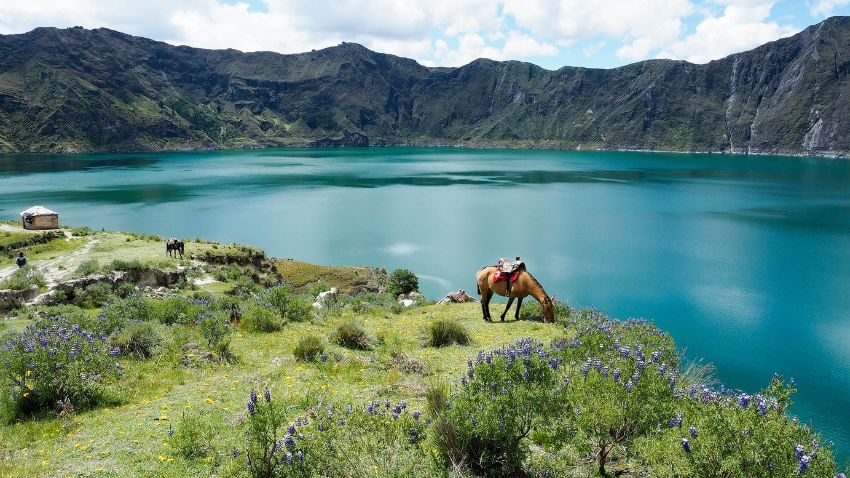
Quilotoa Lake at Latacunga, Ecuador
This small Central American country has long been a popular destination for US and Canadian expats thanks to a high standard of living, affordable health care, and political stability. Regarding food security, Costa Rica ranks well above the regional average in several important areas, such as sustainable agriculture, access to clean water, and the ability to cover domestic needs.
Aside from the natural beauty and quality of life, there are some tax benefits to living in Costa Rica, such as only paying taxes on income sourced in the country. It truly is a beautiful place to live in.
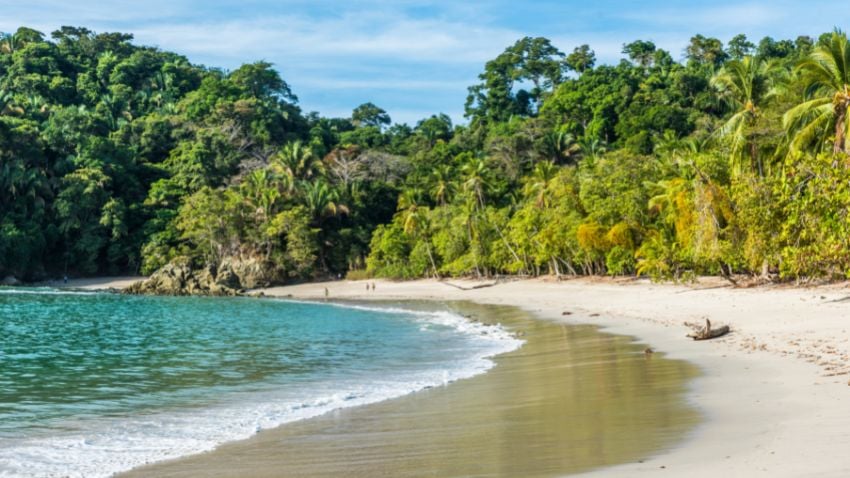
Playa Conchal, Guanacaste, Costa Rica
Another country famous for its beautiful beaches and diverse landscape, Thailand is one of the most food-secure countries in Asia. While it only receives an average score for water independence, Thailand is one of the largest regional exporters of fruits and vegetables, rice, fish, and seafood.
With that said, Thailand is well-regarded as an expat destination when considering the taxes and the low cost of living.
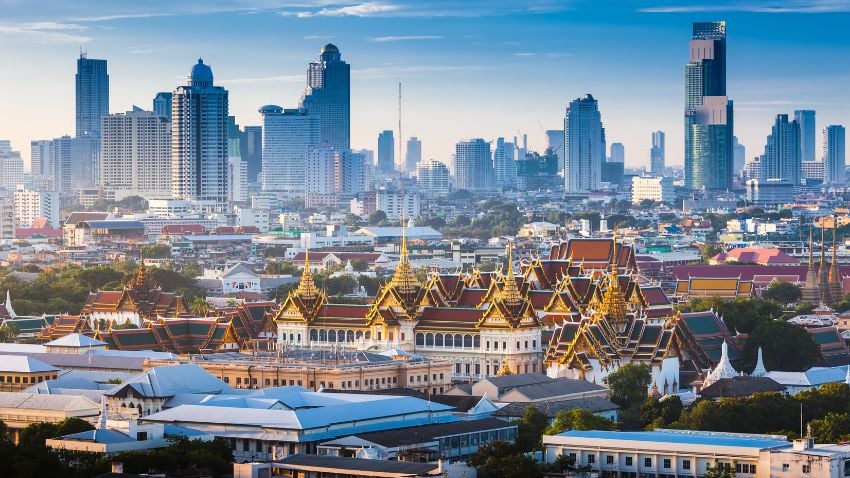
Grand Palace of Bangkok, Thailand
While it may not be the first country that comes to mind, Hungary is one of a few in Europe that can claim the title of food independence. With plenty of flat and fertile land for agriculture and cattle grazing, Hungary is a major producer in the region for grains, fruits, vegetables, and meat.
Hungary has also become a popular destination for citizens of high-cost Western European countries courtesy of effective asset protection strategies and a flat income tax of 15%.
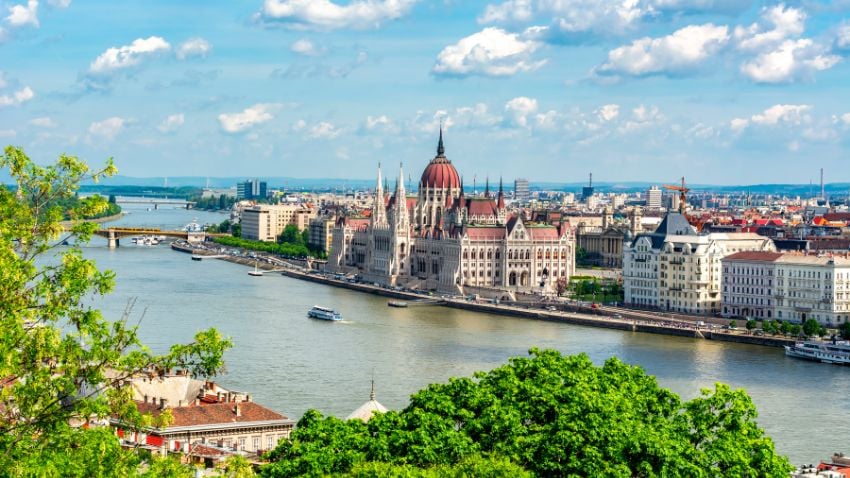
Hungarian Parliament Building in Budapest, Hungary
Thanks to a low population density, plenty of arable farmland, and a temperate climate, Bulgaria is the second-most food-independent country in Europe, ranking seventh overall on the FAO self-sufficiency index. Aside from grains, Bulgaria is known for its fresh produce and honey. However, in light of the war in neighbouring Ukraine, the Bulgarian government has prioritized food security and recently provided over 500 million Euros in aid to local farmers.
Related content: How To Obtain Residency In Bulgaria
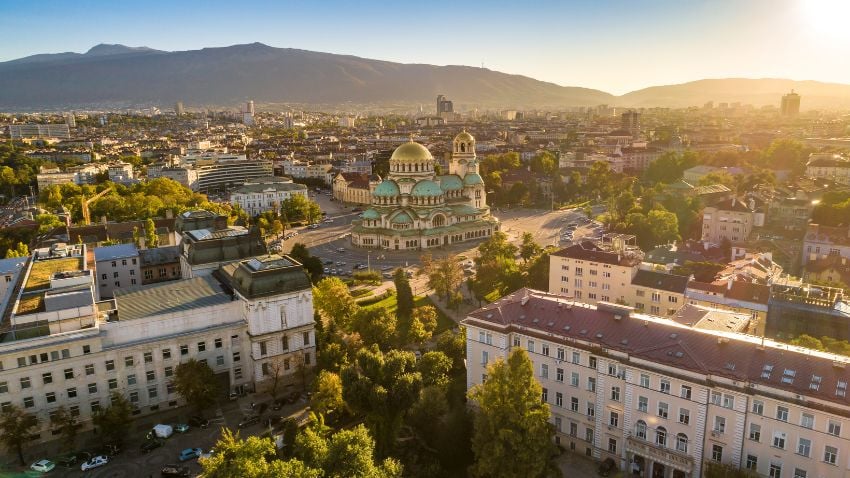
Sofia, Bulgaria
Paraguay is fortunate to have an ample supply of fresh water and fertile farmland despite being landlocked. While regarded as one of the least industrialized countries in South America, Paraguay produces more than enough food to cover domestic consumption. In fact, foodstuffs like soy, oranges, sugarcane, and beef comprise the bulk of the country's exports.
Aside from food and water independence, Paraguay has been gaining attention from expats thanks to its affordability, low tax rate, and no taxes on foreign-sourced income.
Related content: Options For Residency In Paraguay
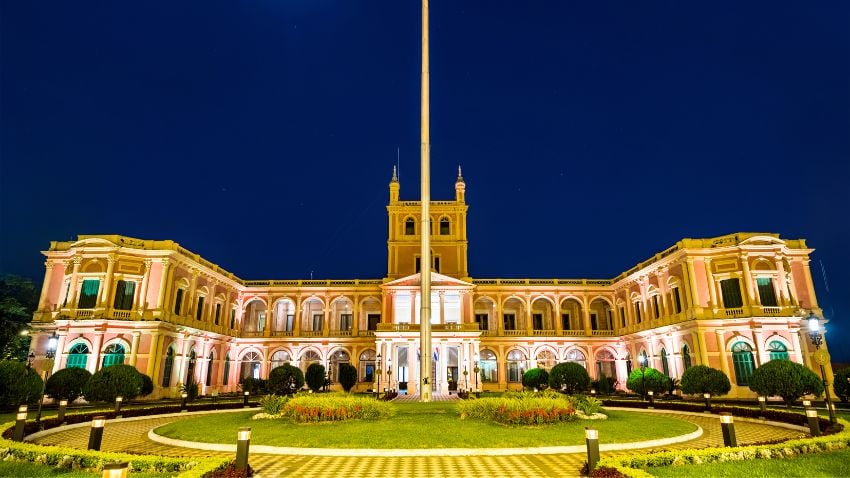
Palacio de Lopez in Asuncion, Paraguay
Another popular destination for North American expats, Nicaragua is largely self-sufficient in essential food production. In fact, a large portion of the population works in sustenance agriculture, meaning most of the produce and meat at the local corner store is fresh and locally grown.
At the same time, life in Nicaragua is not without challenges due to frequent natural disasters and deficient infrastructure. However, it does have some things going for it, such as the ease of obtaining residency, a low cost of living, and a laid-back lifestyle.
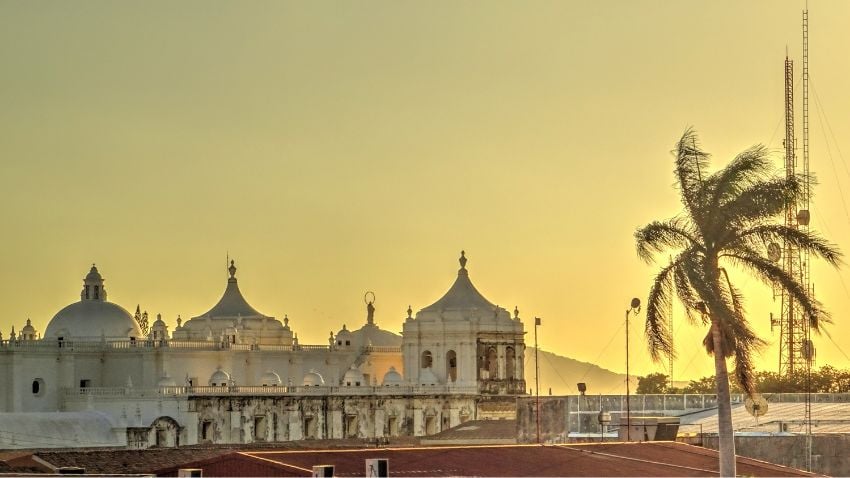
Leon, Nicaragua
While Argentina is more known for its economic woes, it is the most self-sufficient country in the world, according to the Food and Agriculture Organization of the United Nations (FAO). With plenty of fertile farmland and fresh water, this shouldn't come as a surprise, and Argentina is a major exporter of beef, corn, wheat, and soybeans, among others.
Likewise, it has one of the highest standards of living in Latin America, and recent devaluations of the peso relative have made Argentina an attractive destination for expats.
-4.jpg?width=850&height=478&name=Copy%20of%20Articles%20(850%20%C3%97%20478%20px)-4.jpg)
Often referred to as the Switzerland of the Americas, Panama may not rank as high as some other entries on the list, but it benefits from being a major transit route. Home to the Panama Canal that links the Atlantic and Pacific Oceans, the likelihood of disruptions to the food supply is close to zero.
Of course, Panama offers several other benefits, such as no taxes on foreign-sourced income, ease of establishing a business, and strict banking secrecy laws.
Related content: Why Getting Your Panama Permanent Residence Is So Important
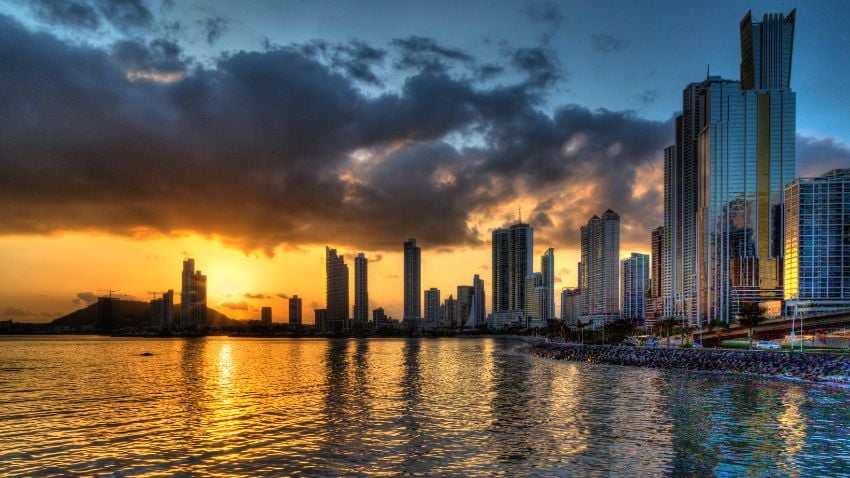
Panama City, Panama
Uruguay also receives high marks for food and water independence, ranking second on the FAO index behind its southern neighbour, Argentina. Unsurprisingly, Uruguay's food production far exceeds domestic demand, with foodstuffs like beef, milk, rice, and soybeans comprising a bulk of the country's exports.
On a positive note, Uruguay is one of the region's most stable countries thanks to its pro-business approach and prudent economic policies. As such, it has bucked the trend of a resurgent left that recently swept through Brazil, Colombia, and Peru.
Related content: Why Uruguay Residency Is So Appealing
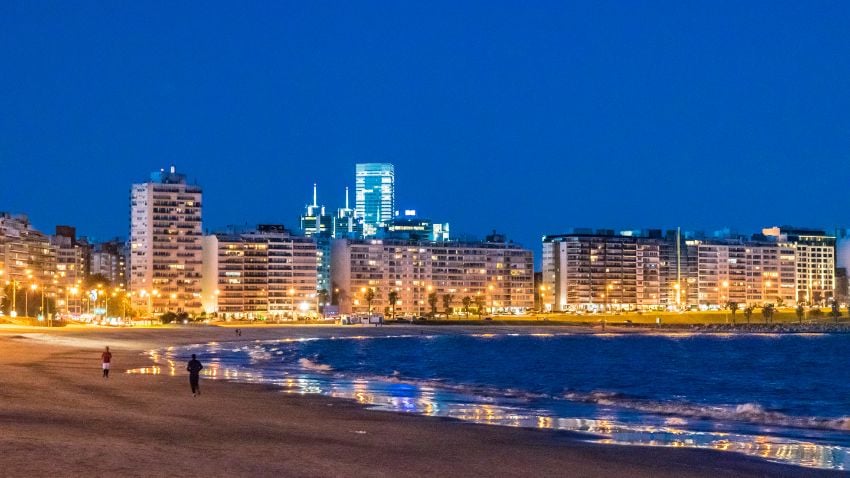
Pocitos Beach, Montevideo, Uruguay
Brazil is the largest country in Latin America and a regional powerhouse, boasting a diversified economy comprising manufacturing, agriculture, food production, and natural resource extraction. With the Amazon River snaking through the country, there is ample fresh water for growing crops and raising livestock. Like other countries in the region, production exceeds domestic needs, with foodstuffs comprising a sizable portion of Brazil's exports.
Related content: Relax While Working With Brazil’s Digital Nomad Visa
This list shows how many countries, some of which are even a surprise for me to see, such as Hungary, are food- and water-sustainable. Most of the mentioned countries are expat-friendly, have their own digital nomad and residency by investment programs, and are places where you can get more for your dollar. All of the mentioned countries are worth a visit, or maybe even getting a second residency.
If you want the best intel from the expat world, including profitable offshore opportunities, little-known tax-saving strategies, and hard-won insights on immigration, passports, and Plan-B residencies, all delivered to your inbox every single week, then join our daily correspondence, EMS Pulse®. Currently enjoyed by over 84,000 expats and expat-hopefuls worldwide. Fill in the form below to join our newsletter free:

Written by Mikkel Thorup
Mikkel Thorup is the world’s most sought-after expat consultant. He focuses on helping high-net-worth private clients to legally mitigate tax liabilities, obtain a second residency and citizenship, and assemble a portfolio of foreign investments including international real estate, timber plantations, agricultural land and other hard-money tangible assets. Mikkel is the Founder and CEO at Expat Money®, a private consulting firm started in 2017. He hosts the popular weekly podcast, the Expat Money Show, and wrote the definitive #1-Best Selling book Expat Secrets - How To Pay Zero Taxes, Live Overseas And Make Giant Piles Of Money, and his second book: Expats Guide On Moving To Mexico.
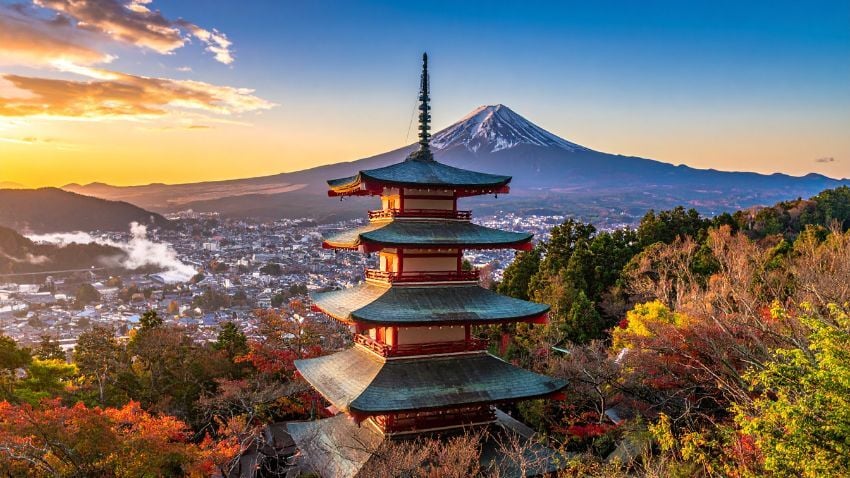
The word "Japan" brings to mind many things: high-tech, sushi, anime, samurai, and cherry blossoms. It is one of the most intriguing countries in...
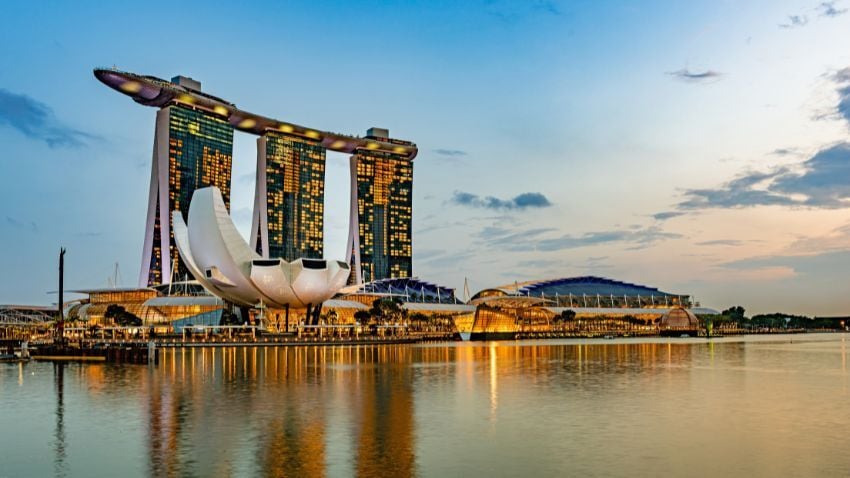
Singapore is often described as a city that works, and it totally deserves its reputation. This small island nation in Southeast Asia has built one...

Panama’s geographic size is modest, but its global relevance is not. The country connects two oceans and two continents, operates on a dollarized...